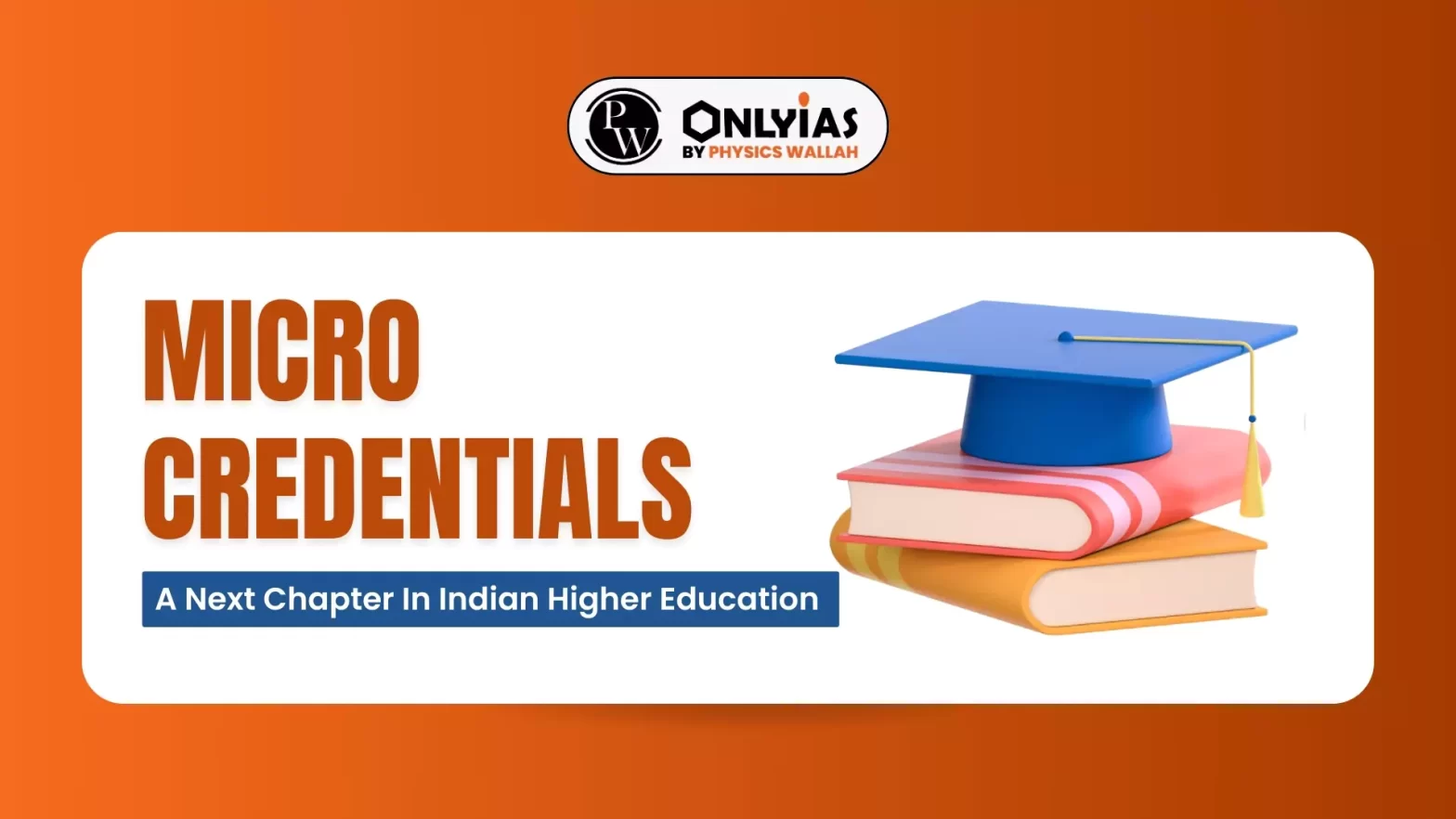Context:
This editorial is based on the news “Micro credentials, the next chapter in Indian higher education” which was published in the Hindu. This article highlights that the higher education institutes in India can be the catalysts in integrating micro credentials with existing academic programmes to achieve excellence in the system.
What Are Micro Credentials?
- Short-Duration Learning Programmes: Short learning programs, usually online, that focus on specific skills or competencies and take much less time to complete than formal degrees. It can be from a few hours to several weeks.
- Validity: Issued a digital badge, certificate, or credits as proof of completion.
- Examples: Digital marketing certificate from Google or Facebook, Data science course from NASSCOM or IBM, FinTech program from EY or Deloitte, Java programming course from Coursera, Short term TEFL course for English teaching, Excel modelling course from BSE Institute, etc.
About Macro Credentials
- Formal Degrees: It provides formal degrees like bachelor’s, master’s degrees that take 2-4 years of full-time study.
- Broad-based Education: It provides a broad-based education across many subjects.
- Credits: The credits are based on time spent in classrooms/labs.
- Examples: BTech or BE degrees in engineering disciplines, MBBS degree in medicine, BSc/MSc degrees in sciences, BA/MA degrees in social sciences and humanities, MBA degree in business administration, LLB degree in law, etc.
|
Significance of Micro Credentials
- Help bridge the skills gap between what students learn in college vs what employers want.
- Allow customised skill development as per industry needs. It helps students gain employable, in-demand skills quickly.
- Accessibility: Credits can accumulate over time and apply to formal degrees. It is more flexible and accessible than formal degrees.
- Lifelong Learning: Part of revolution in online, lifelong learning beyond traditional education.
- For Employment: Important for employability as hiring focuses more on skills than just degrees. It allows working professionals to upskill without committing to a full degree.
Challenges With Micro Credentials
- Recognition: There is still limited awareness and formal recognition of micro credentials by many Indian employers and educational institutions. Their value is still to be established.
- Quality Assurance: There are no clear regulations or benchmarks to ensure quality and consistency across different micro credential providers. Credibility is a concern.
- Integration with Formal Degrees: Mapping micro credentials to credits in mainstream degree programs under the National Credit Framework is still at an early stage.
- Accessibility: Issues like digital divide, affordability of courses, and eligibility criteria can limit access to online micro credentials, especially for disadvantaged groups.
- Motivation for Providers: There are limited financial incentives for Indian universities and colleges to develop micro credential programs compared to their mainstream offerings.
- Mindset Barriers: Traditional mindsets that favour formal degrees over skills programs or continued learning. Both students and institutions prefer multi-year degrees.
Conclusion
Indian higher education institutes must serve as agents of transformation and consider introducing micro credentials a vital element of their strategic institutional objectives, which requires regulators and institutes to must work towards harmonising micro credentials with existing academic programmes by coming up with clear validation metrics.
Also Read: Interim Budget 2024-2025
![]() 5 Feb 2024
5 Feb 2024
